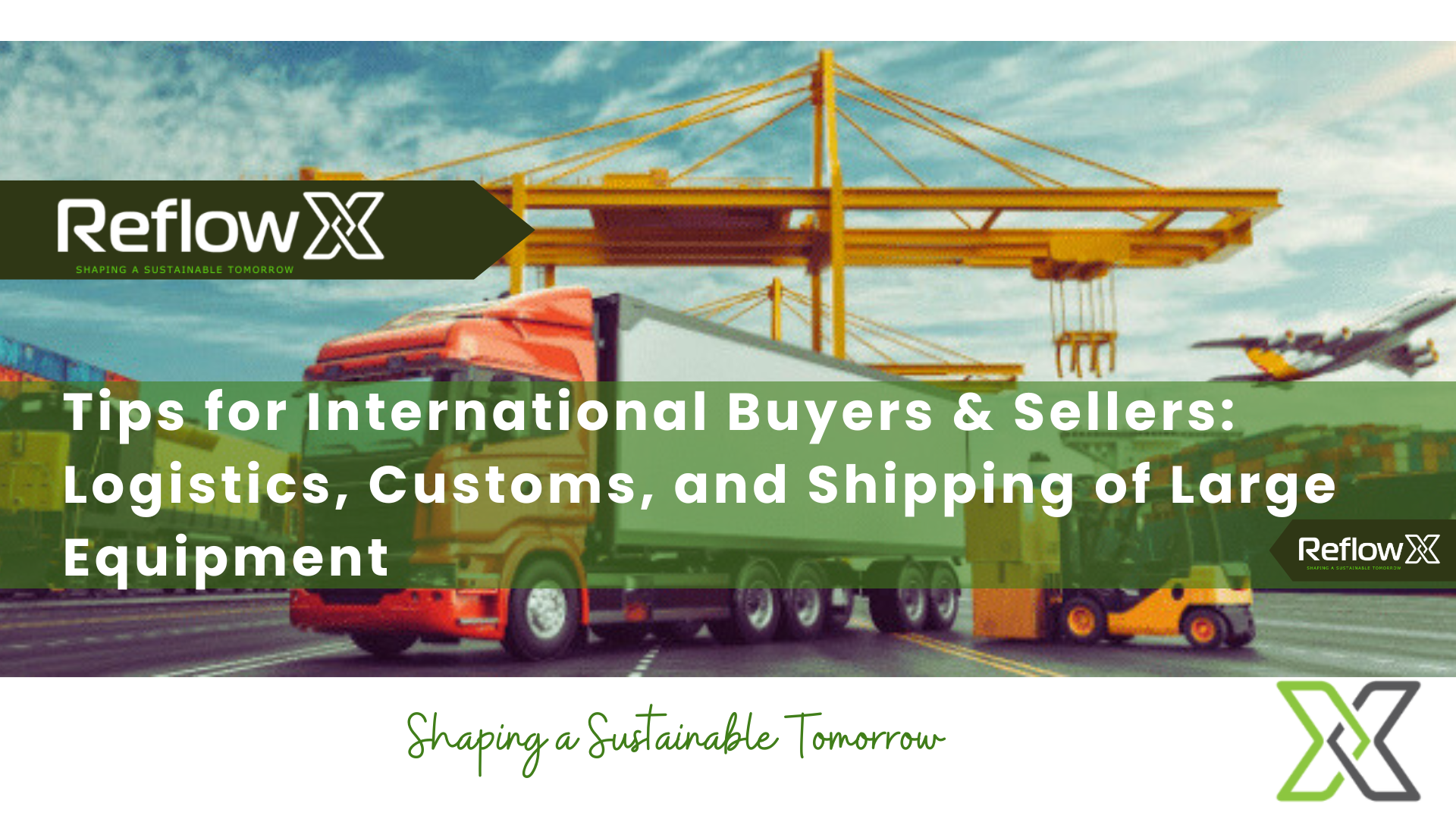
The industrial machinery and large-scale equipment market is experiencing rapid international expansion. Large equipment has taken centre stage in propagating industrial growth. The buying and selling of these machines has opened doors to new markets and reduced costs as well. On the other hand, it also introduces complexities in logistics, legal compliance, and risk management.
For the international buyers and sellers, understanding these complexities has become an absolute necessity for carrying out successful transactions. Thorough knowledge of customs clearance is an added advantage. The practical tips shared in this article will help new buyers and sellers navigate smoothly through these challenges.
Scope of International Shipping – A Brief Understanding
International shipping doesn’t involve moving goods from one point to another. It involves intricate synchronisation of multiple transportation issues like sea freight, air cargo, road, and rail. All this depends on the cargo size, its weight, and shipment deadlines.
Buyers must keep in mind transit times, accessibility of the port, and shipping routes while making a purchase. On the other hand, the sellers need to put special emphasis on equipment packaging to withstand long-distance travel. Insurance coverage is another vital element that both buyers and sellers must keep in mind.
Customs Clearance: How Vital Is It?
The most vital hurdle for cross-border trade is customs clearance. Each country has its own set of rules regarding documentation. The duty calculation is also different, and so are the applicable restrictions. The buyer and seller can face heavy penalties and shipment delays if their paperwork is missing or has incorrect declarations. Here is a list of vital documents that they must typically include:
- A detailed commercial invoice stating the equipment’s value and purpose
- Document the goods being transported, their destination, shipper name, and consignee, depending on the transport mode.
- Packing list for machinery having multiple components.
- Origin certificates of conformity are mandatory for certain markets.
To expedite the transaction process, both buyers and sellers should appoint experienced transporters or customs brokers who are familiar with local restrictions. And to avoid costly mistakes.
Logistics Planning for Heavy Lifting
Large-sized equipment requires a specialised handling process during transit. This is called heavy lift logistics. Here are some oversized or overweight cargo that needs these logistics:
- Power plant turbine transportation.
- Cranes, excavators, and industrial presses.
- Drilling equipment for offshore transportation
These shipments need customised trailers, cranes, or even barges for water transport. Additionally, the routes need specialised and careful planning to avoid obstacles like low bridges, narrow roads, or weak infrastructure. Local permits often become essential. Leveraging the expertise of heavy lift logistics providers can be a very good choice in this case.
Export/Import Regulations: A Brief Understanding
The export/import regulations control every international trade transaction. These rules cover:
- Rules and regulations for restricted goods.
- Their licensing requirements, and
- Their safety certifications
Sellers must make sure that their equipment carries the export-eligible tag and has all the necessary export licences. The buyers must conform to a country’s import, safety, and environmental regulations. If they don’t, they risk having their belongings seized, incurring huge penalties, and facing huge legal complications.
Staying compliant with export/import regulations is the demand of the day. So, engaging trade compliance consultants or legal experts is a very wise choice while dealing with such high-value or complex equipment.
N.B.: Make a note, the dual-use equipment requires special transport permissions.
Managing the Cost Management and Maintaining Transparency
Large equipment transport internationally is a very expensive proposition. Hidden costs like port handling charges, insurance premiums, inland transportation fees, and warehousing costs can considerably increase the overall cost.
Buyers and sellers should decide on upfront costs using Incoterms, or International Commercial Terms. These define who will bear the expense and risk at every step of the shipping process. Clauses like FOB (Free on Board) or DDP (Delivered Duty Paid) clearly clarify all obligations, thereby reducing future disputes.
Risk Management Involving Large Equipment Shipping
Industrial machinery is quite costly, and risk management here should be at the top level. The areas that need special care are:
-
Insurance
Extensive policies covering equipment loss, theft, or damage.
-
Tracker Technology
GPS-enabled monitoring must be used to follow the shipment.
-
Planning for Emergency Situations
Backup transportation routes or alternate storage options should be planned beforehand to counter unexpected transport delays.
These risk management measures defend against financial losses and foster confidence between buyers and sellers.
Emphasis on Creating Strong Partnerships
Developing strong ties with service providers such as logistics companies, insurance agents, and freight forwarders is one of the most effective ways to accelerate foreign equipment transactions. They are highly proficient in documentation, compliance issues, transport planning, and other areas. They guarantee seamless operations from beginning to end.
Long-term partnerships yield opportunities like getting better prices, priority services, and new market accessibility.
Conclusion
International trade in large equipment has both opportunities and constraints. A buyer or seller finds themselves in a more comfortable position when they come prepared with all the subtleties of international shipping. Meticulous planning, straightforward communication, and rock-solid collaboration are essential to be successful in this field. The rewards of getting access to global markets and buying/selling specialised equipment are truly worth the effort.
 Prev Blog
Prev Blog